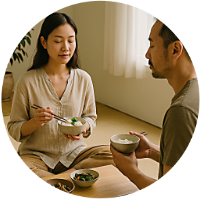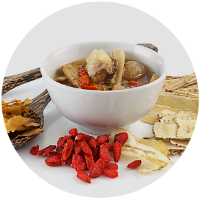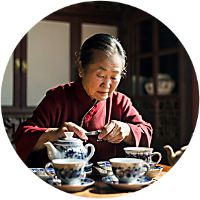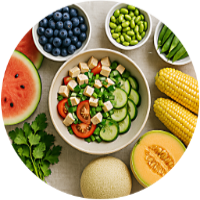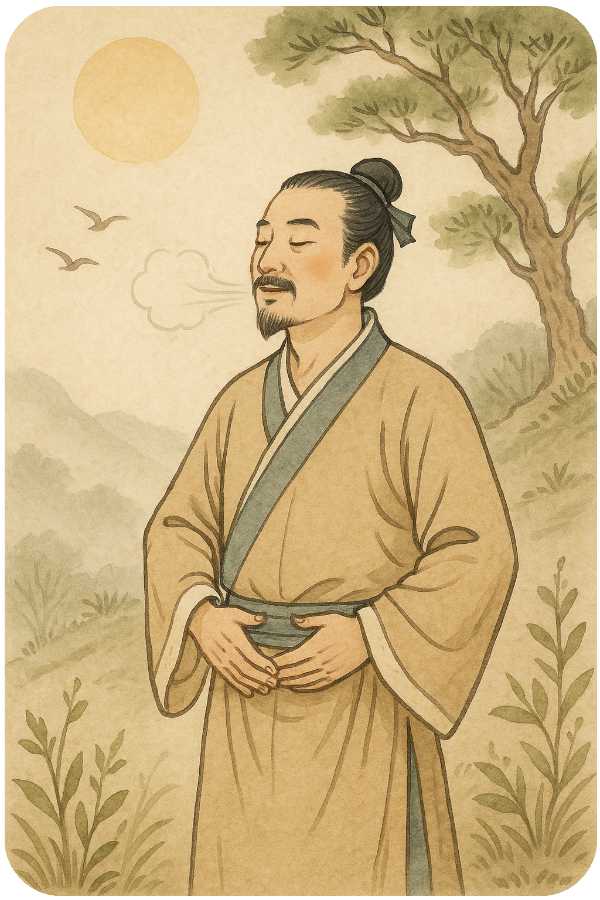Food as Medicine:
The First Prescription
There’s a Chinese proverb that says, “He who takes medicine and neglects his diet wastes the skill of the physician.” For thousands of years, food has been viewed in China not only as nourishment, but as the foundation of health and healing. Medicine is used when needed—but daily meals are considered the first and most reliable form of care.
In traditional Chinese medicine (TCM), a skilled practitioner looks first at how someone eats. Are the meals warming or cooling? Is the digestion strong or sluggish? Are certain organs being supported or overworked by food choices? Rather than applying one diet for all, TCM emphasizes personalized eating based on constitution, season, age, and even emotional state.
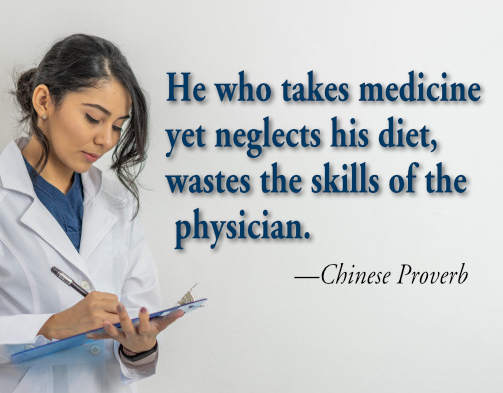 The concept of food as medicine isn’t just old wisdom. Modern research continues to show that whole foods—fresh vegetables, grains, legumes, fruits, and traditional broths—can reduce inflammation, improve immunity, balance blood sugar, and support mental clarity. Many chronic conditions, from high blood pressure to digestive disorders, respond more effectively to consistent dietary changes than to medication alone.
The concept of food as medicine isn’t just old wisdom. Modern research continues to show that whole foods—fresh vegetables, grains, legumes, fruits, and traditional broths—can reduce inflammation, improve immunity, balance blood sugar, and support mental clarity. Many chronic conditions, from high blood pressure to digestive disorders, respond more effectively to consistent dietary changes than to medication alone.
In Chinese kitchens, the idea of eating for health is woven into everyday cooking. A woman recovering from childbirth might be served warming chicken soup with herbs to replenish blood. An older adult with cold limbs may drink ginger and date tea to support circulation. Foods are chosen not just for taste, but for their energetic qualities: pumpkin to strengthen the spleen, lotus seed to calm the spirit, seaweed to soften lumps and nodules.
This approach doesn’t mean every meal must be medicinal. It means food is respected, chosen with care, and used intentionally. Over time, this attention adds up—small, daily choices become long-term medicine.
Eating this way requires slowing down just enough to ask: What does my body need today? What season am I in? How do I feel after I eat? The answers aren’t found in numbers, but in observation and experience.
Food is not just fuel. It’s communication with the body. And when we learn to listen—and respond—we begin to rediscover a medicine that’s been with us all along.
Vocabulary Guide
- Traditional Chinese Medicine (TCM) – A complete medical system developed in China over thousands of years, using herbs, acupuncture, movement, and diet to maintain balance and treat illness.
- Spleen (脾 pí) – In TCM, the spleen is not just an organ, but the energetic system responsible for digestion, energy production, and fluid balance.
- Warming foods (温热 wēnrè) – Foods like ginger, lamb, or cinnamon that support circulation and digestion, especially in cold weather or for people who tend to feel cold.
- Whole foods (全食物 quán shíwù) – Unprocessed or minimally processed ingredients such as vegetables, grains, legumes, fruits, and natural oils, often emphasized in both traditional and modern health practices.
- Blood deficiency (血虚 xuè xū) – A common diagnosis in TCM indicating low or weak blood, often associated with fatigue, pale complexion, and dizziness; treated with foods that nourish and build blood.

